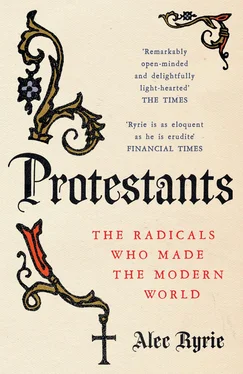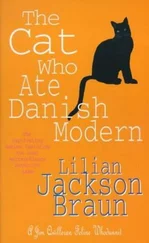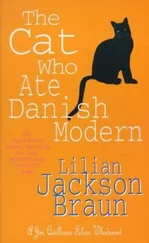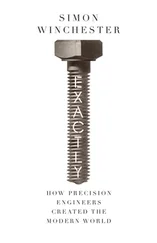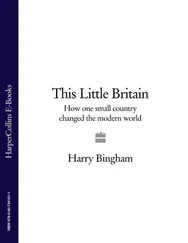Luther, now outed as a plain heretic, should have been arrested and dealt with. He was saved by politics. Rome had more pressing concerns than this squabble between German friars. The Holy Roman Emperor, Maximilian I, had been dying for years and doing so unconscionably slowly. Since 1514, he had taken a coffin with him everywhere he travelled. Long before he finally died in January 1519, plans were being laid for the contest to follow. For the imperial title was not hereditary; it was elected, chosen by seven senior German princes and bishops. Since 1440, the electors had chosen members of Austria’s Habsburg dynasty, but there was nothing to stop them from choosing someone else, and this time there was a good reason to do so: the Habsburg candidate, the eighteen-year-old Charles, was also king of Spain and of the Netherlands. The prospect of one man’s controlling such a vast set of territories was alarming, not least to the pope. The king of France was a realistic rival. Even Henry VIII of England was considered. The looming election overshadowed everything.
It just so happened that one of the seven electors was Frederick of Saxony, Luther’s local prince and the founder of the University of Wittenberg. Frederick’s relationship with Luther was an odd one. The two men never met in person, and Frederick, who was an avid collector of holy relics, never quite saw the point of Luther’s theological preoccupations. Yet he was determined to defend the celebrity professor from his prized university. The celebrity was certainly part of it. Luther had put Wittenberg on the map in a very pleasing way, was beginning to attract star academics and distinguished students, and had vaulted the town’s printing industry into the first rank. In this sense, Frederick’s protection was a side effect of Luther’s mass-market appeal. But Frederick also wanted to defy outside interference as a matter of principle. And in 1518–19, Frederick’s wishes mattered. In the impending imperial election, he was seen as a crucial swing vote. He was even considered an imperial candidate himself. If, at this moment, he wanted to shelter a suspected heretic, no one was going to force the issue.
In the end, on June 28, 1519, Charles was unanimously elected emperor, and became Charles V. But the damage was already done. The crucial Leipzig disputation was unfolding when the election was held. Frederick had bought Luther enough time to turn his personal crisis of conscience into a mass movement threatening the Church’s entire structure of authority.
During 1520, Luther wrote a series of tracts laying out the core of his ideas. His legions of readers snapped them up like episodes of a serial drama. The Freedom of a Christian described his understanding of God’s free grace in rapturous terms. Other books reviled the Church’s hierarchy and the corruption he thought it had spawned. Luther declared that the Church’s ceremonies and sacraments were an elaborate confidence trick, fleecing Christians before abandoning them to hell. All Christians, he insisted, had both the right and the responsibility to reform the Church, and they should act on that right whatever the priests say. In fact, the distinction between priests and laypeople was meaningless. All Christians are priests. At the end of the year, he defiantly burned the papal bull that had condemned him as a heretic.
By then, his enemies were finally assembling. The new emperor formally assumed his imperial title in October 1520. Luther had had a magnificent run, but justice was closing in on him. An imperial Diet, the empire’s highest legislative body, was planned at the southwestern German city of Worms. Luther was summoned to attend and, undoubtedly, to be condemned. He was promised safe-conduct from Wittenberg to Worms and back, but promises made to convicted heretics were not necessarily binding. Jan Hus, whom Luther had praised in Leipzig, had been burned despite just such a safe-conduct promise. Luther fully expected the same fate, and friends urged him not to go. His correspondence as the Diet approached shows a man torn. Naturally, he was frightened and agitated. He prayed urgently for safety and doubted his prayers would be granted. Yet in another mood, he relished the Diet as an apocalyptic confrontation, at which he would at last testify to his doctrines, seal them with his blood, and win a martyr’s crown. And so he went to Worms as Christ went to Jerusalem, a three-hundred-mile journey, pausing to preach on the way. When warned of the dangers ahead, he replied that if there were as many devils in Worms as there were tiles on the roofs, he would still go. He arrived on 17 April 1521, to find the rooftops crowded, not with devils, but with supporters and spectators. The streets were so thronged as to be impassable. He was borne through to the Diet and brought before the estates of the empire. 8
Luther expected to have his long-delayed argument about God’s grace. Once again he was denied. He was simply presented with his books and asked to repent of the heresies in them. To everyone’s surprise, including perhaps his own, Luther asked for twenty-four hours to think it over. This unexpected request was granted, and it raised some hopes that he might actually concede. The one surviving letter which he wrote that night suggests such hopes were not entirely foolish. “With Christ’s help,” he wrote, “I shall not in all eternity recant the least particle.” 9Apparently, he feared that he might crumble. He could be forgiven for finding the empire’s assembled glories a little overbearing.
He returned the following afternoon and was kept waiting outside the palace for two hours. The crowd pressed about him. Voices shouted that he should stand firm. One called out, “Blessed is the womb that bore you.” 10Finally, he was allowed in, and the previous day’s question was put to him again. He answered carefully. Yes, they were his books. Would he disown them? Only if it could be shown to him, on the basis of the Bible and the Bible alone, that he was wrong. Otherwise, his conscience was captive to the Word of God. He might even – as one witness claimed, many years later – have concluded with a famous declaration of helplessness: “Here I stand. I can do no other.”
Luther often looked back on that moment. In retrospect, his “humility and deference” troubled him: he reproached himself for having “held my spirit in check”. He promised that “they would hear other things, if I would come before them again.” 11In other words, Luther at Worms was not quite the roaring lion of Protestant legend. He spent a week after that famous exchange locked in debate with a formidable roster of German prelates and princes. They had enough to talk about that the emperor extended his safe-conduct for forty-eight hours to allow the discussions to continue. But in vain. Neither side would budge. So Luther was condemned as a heretic and outlawed. The young emperor, principled, prudent and a touch naive, honoured the safe-conduct. Luther left Worms on 26 April, having been granted neither his argument nor his martyrdom. Even so, the Diet of Worms would be the epicentre of his life and of what would become the Reformation: humble, unyielding defiance of the whole world in the name of Scripture and conscience.
“Captive to the Word of God”
Part of Luther’s achievement at Worms was to enact, with unforgettable vividness, a new way of doing theology, which has defined Protestantism ever since. At the Diet, the archbishop of Trier’s secretary, Johann Eck (a different Eck from Leipzig) accused Luther of being “completely mad”. This was not just abuse. Eck was genuinely shocked. Luther had demanded to have his errors proved to him, from the Bible, to his own satisfaction. Eck pointed out the obvious problem:
If it were granted that whoever contradicts the councils and the common understanding of the Church must be overcome by Scripture passages, we will have nothing in Christianity that is certain or decided. 12
Читать дальше
